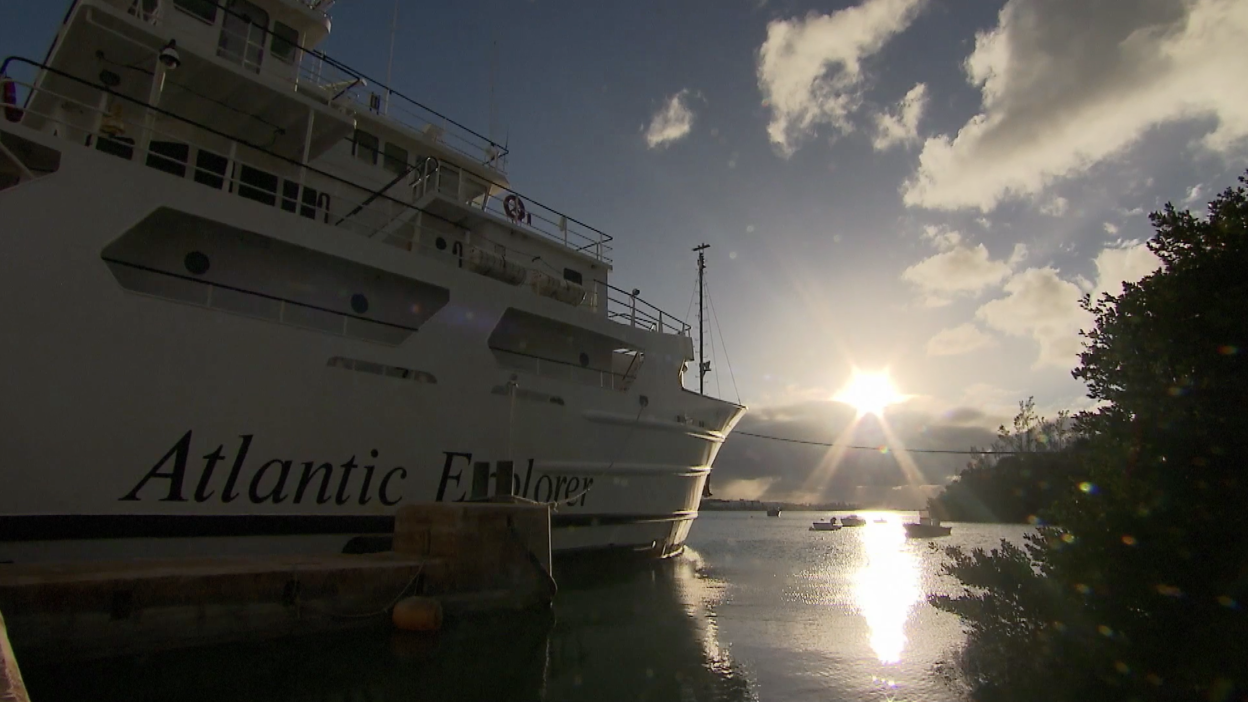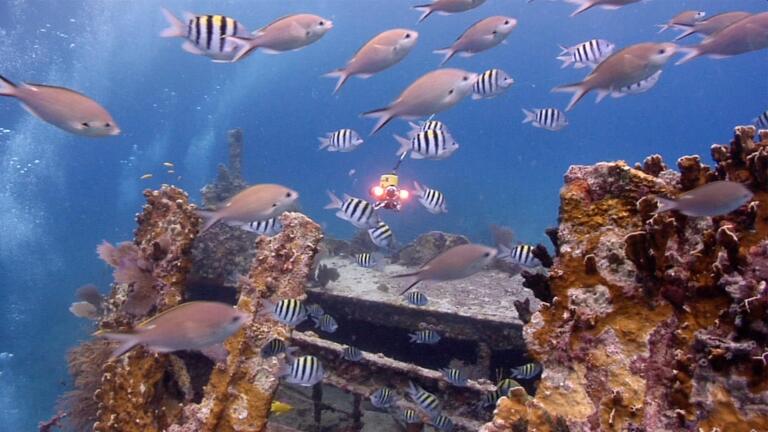
Access to this video is a benefit for members through PBS Passport.
Back to Show
Changing Seas
The Fate of Carbon
Season 9
Episode 903
For millennia, the exchange of CO2 between the oceans and atmosphere has been in balance. Now, with more anthropogenic carbon-dioxide in the atmosphere, the oceans are taking up more CO2 as well. This negatively impacts sensitive ecosystems through a process called ocean acidification, and scientists worry how changes to the ocean environment will affect the way carbon is cycled through the seas.
Support Provided By

Unlock with PBS Passport
26:46
New research sheds light on the lives of mysterious creatures of the deep.

Unlock with PBS Passport
26:45
Divers from around the country learn how to map shipwrecks.

Unlock with PBS Passport
26:45
Follow one scientist studying coral in Belize.

Unlock with PBS Passport
27:14
Scientists studying the coastal Everglades make some perplexing discoveries.

Unlock with PBS Passport
27:01
The Cayman Islands are home to the last great reproductive population of grouper.

Unlock with PBS Passport
29:33
Scientists work to identify and link a devastating coral disease to a human pathogen.

Unlock with PBS Passport
27:16
Scientists use satellite tags and DNA forensic tools to track tiger sharks.

Unlock with PBS Passport
26:47
Oceanographers continue to study the long term effects of an oil spill.

Unlock with PBS Passport
26:46
A group of scientists tests sea sponges for potential anti-cancer properties.

Unlock with PBS Passport
26:46
Explore the emerging science of coral reef restoration.

Unlock with PBS Passport
26:49
The invasive lionfish is a major threat to biodiversity and a stressed coral reef.

Unlock with PBS Passport
26:48
Examine the important role seagrasses and mangroves play in the ocean’s web of life.











